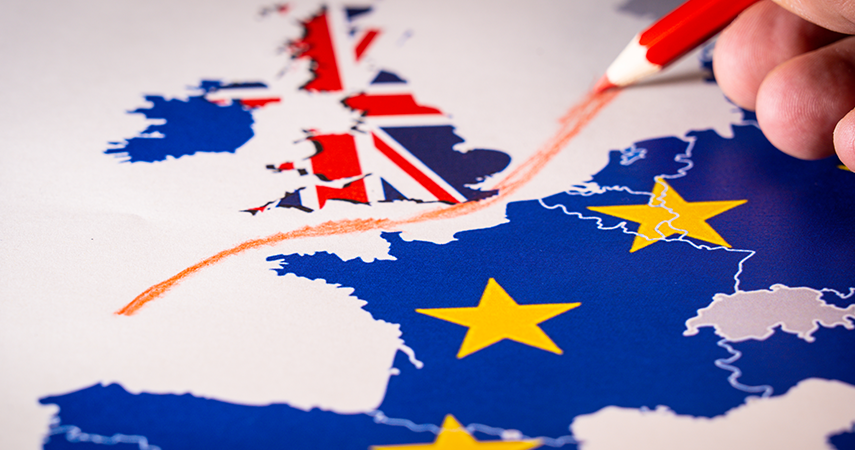Data: What impact will Brexit have?

Brexit has dominated the news cycle since the 2016 referendum, but for all the rhetoric and seemingly round-the-clock coverage, no substantive playbook has been devised for businesses looking to navigate this treacherous strait
Some businesses now find themselves mired in uncertainty, unsure of the implications that a Brexit of any form might bring about. However, amidst the ever-changing deadlines, some experts have done their level best to predict the possible impacts of Brexit.
Eltjo Hofstee, managing director of Leaseweb UK, has predicted that Brexit could potentially have an impact on disaster recovery, meaning that most precious of commodities, data, could be at risk.
“Depending on the progress of the ongoing trade and cooperation negotiations following the UK’s departure from the EU, organisations that currently have active and/or production environments hosted in the UK, but DR sites outside of the UK, might need to change their arrangements,” he said. “At the very least, many should be reviewing their current approach and assessing how alternatives, such as Disaster Recovery as a Service (DRaaS), could play a role.

“Possible future scenarios include moving DR infrastructure to the UK (if the organisation has UK business and privacy data) or transferring everything to the EU (if they have EU citizen privacy data). In addition, some organisations may need to explore a dual approach across both territories if they have both UK and EU based customers. This all hinges on the outcome of discussions between the UK and EU about how GDPR will apply and whether the data held (and backed up as part of a DR strategy) by UK business is ‘adequately’ aligned with GDPR.”
Hofstee said that based on the current conversations between EU and UK, it looks likely that nothing will change with regards to data privacy rules and regulations as they currently stand. But it’s not always cut and dry, so businesses best be prepared for any outcome.
“A company doesn’t want to get caught in a position where part of its business can’t operate as it hasn’t covered all bases.”
Sunny Dhami, RingCentral
Some companies head into this uncertainty a lot more confident than others. RingCentral, the award-winning UCaaS (unified communications as a service) and CCaaS (contact centre as a service) vendor is one of them.
Sunny Dhami, Senior Director of Product Marketing & GTM for EMEA, said: “Understandably Brexit is raising a lot of uncertainties, and many businesses are concerned that it will require lots of change. For us, as we are a global and cloud-based business, Brexit doesn’t pose any major concerns—we are prepared with local in-country data, and our European datacentres provide a global service. And it’s likely that many other global and cloud-based businesses will be in a similar position.
“But it’s important that when preparing for Brexit, companies also take into consideration the partners and technology suppliers they are working with, ensuring they conform with both European and UK rules and regulations too. A company doesn’t want to get caught in a position where part of its business can’t operate as it hasn’t covered all bases.”
READ MORE: RingCentral – Unifying communications and empowering enterprises
RingCentral is clearly confident in their own position, ensuring that its customers do not need to make any changes to their platforms. One less thing for businesses to worry about, Dhami said.
A hybrid cloud solution could well be a saving grace for businesses, Hofstee said. But he warned that adaptability would be fundamental to successfully overcome any obstacles which might land at the feet of businesses.
“In the UK, Brexit will likely give a push for more locally stored privacy data, and adoption of cloud is likely to increase globally. Specifically, companies can expect the demand for cloud-based [disaster recovery] to continue to rise in a post-Brexit Europe.
“Despite the recent election result, there’s much about Brexit that still needs to be finalised. As a result, businesses will need to be prepared to adapt rapidly to whatever policies and regulations result from the negotiations. Instead of undertaking a costly move to a more advantageous location, cloud adoption can provide the ideal solution to Disaster Recovery challenges and is one of the most effective ways for IT leaders to prepare their companies for a post-Brexit UK and Europe.”
